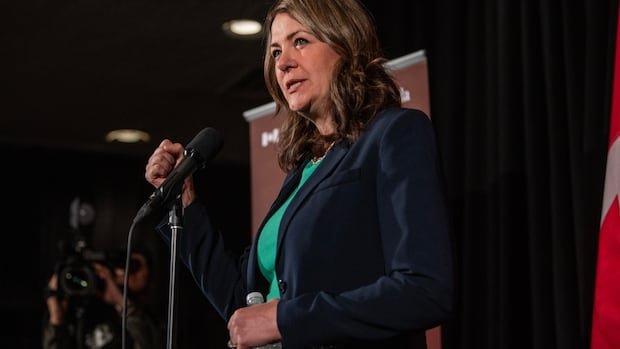Alberta’s Premier, known for her libertarian approach, is considering utilizing the notwithstanding clause extensively to uphold three laws concerning transgender issues, spanning health, education, and sports. Danielle Smith is adamant about safeguarding these laws against potential legal challenges. Despite her strong belief in protecting individual rights and freedoms, Smith is now contemplating invoking the constitutional override clause to ensure the survival of her government’s legislation.
Smith, who holds an arm tattoo symbolizing “liberty” or “freedom,” has previously expanded Alberta’s Bill of Rights to encompass additional provisions related to property rights, gun ownership, and medical treatment refusal. She has consistently emphasized the importance of fundamental freedoms and individual rights in Alberta’s society.
Recently, a leaked memo disclosed Smith’s intention to introduce legislation utilizing the notwithstanding clause to counter legal challenges to the transgender laws introduced by her government. These laws aim to regulate transgender participation in sports, require parental consent for name and pronoun changes in schools, and restrict gender-affirming treatments for young individuals.
Despite facing legal opposition from advocacy groups on the grounds of violating Charter rights, Smith remains committed to defending the constitutionality of the laws. While some may question the government’s authority to override rights, Smith’s dedication to defending her stance on transgender issues underscores the complex interplay between political decisions and judicial interpretations.
Smith’s stance aligns with her belief in parliamentary supremacy and the importance of politicians determining rights interpretations over the judiciary. The Alberta government’s legal argument in support of the notwithstanding clause emphasizes the principle of elected officials’ supremacy over appointed individuals, echoing the sentiments of the Charter’s original architects.
Notwithstanding historical criticisms and cautionary tales regarding the clause’s usage, Smith’s unwavering support for invoking it reflects her commitment to upholding the government’s prerogative in shaping laws and policies. As debates over the notwithstanding clause continue, Smith’s approach underscores the intricate balance between protecting rights and utilizing legislative powers.

